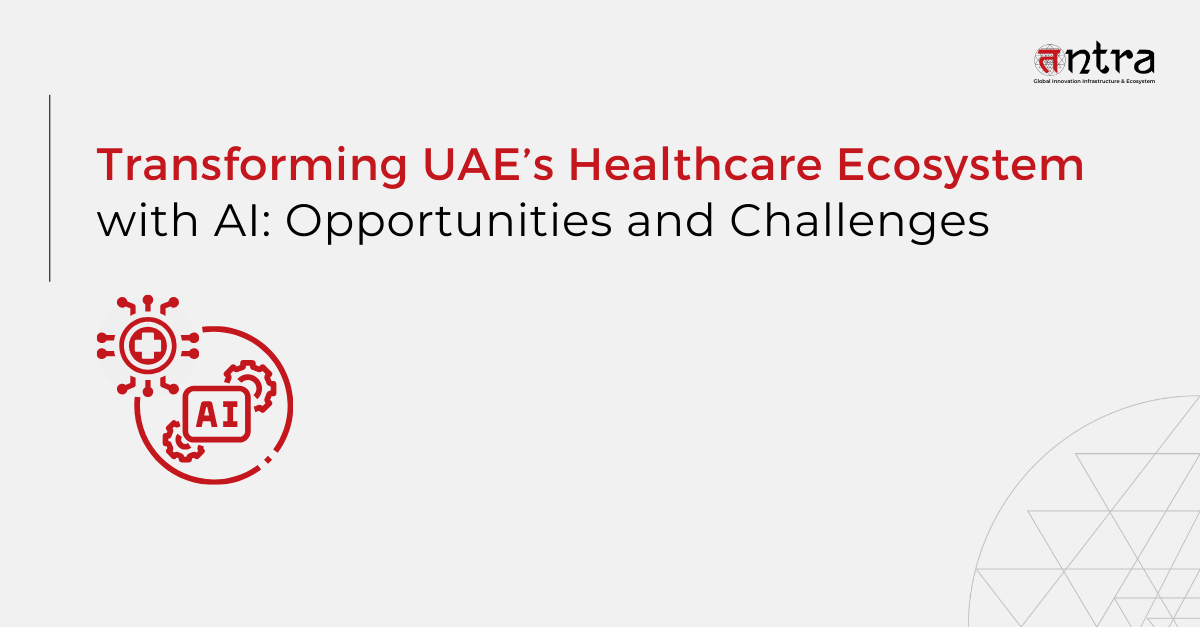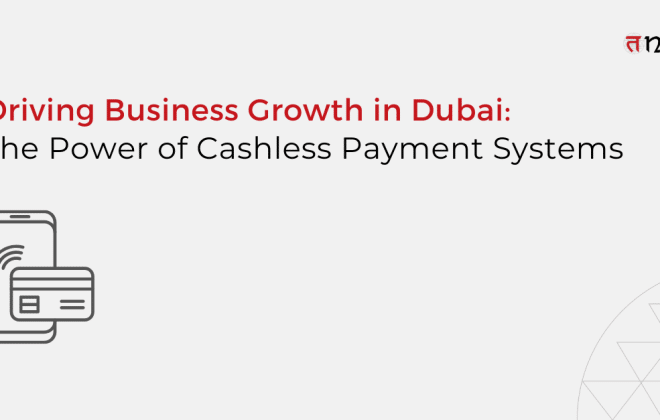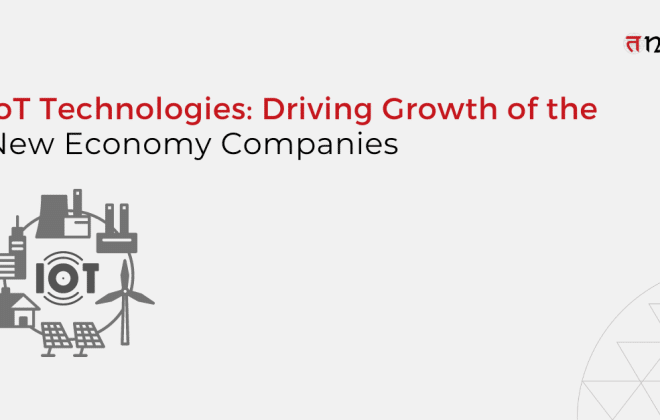
Transforming UAE’s Healthcare Ecosystem with AI: Opportunities and Challenges
Table of Contents
ToggleAI is revolutionizing healthcare by enhancing disease diagnosis, treatment, and prevention. Despite promising developments, challenges remain, such as integrating AI into existing systems, data quality issues, and the need for extensive training. AI offers significant benefits, like reducing medical staff’s administrative burdens and providing real-time patient information. While adoption hurdles persist, the potential for AI to improve healthcare quality and efficiency suggests a transformative future, with the sector expected to reach $188 billion by 2030. Continue reading to learn more.
The AI-based preventative healthcare system Enayati platform was recently introduced by the UAE Ministry of Health. This platform, which is a component of the nation’s National Agenda 2021, has the capacity to track individual health indicators and anticipate possible health hazards. With its smart technologies and applications, Enayati AI healthcare UAE gives healthcare authorities access to real-time health data so they can respond quickly to any cardiac-related problems. Additionally, the utilization of anatomical models in conjunction with 3D printing techniques has allowed DHA hospitals to reduce expenses and enhance surgical outcomes. AI is improving healthcare in the United Arab Emirates in a number of methods.
The UAE is also seeing an increase in telemedicine services and virtual hospitals, which are changing the way healthcare is provided. The UAE’s Ministry of Health and the telecommunications provider Du are working together to create smart healthcare services, such as a telemedicine app. The goal of this partnership is to give people, especially those living in rural areas, easy access to healthcare. Furthermore, inHealth, a UK-based health technology business, and Saal, an AI company based in Abu Dhabi, have partnered to take advantage of AI and introduce state-of-the-art healthcare solutions at a reduced cost. The UAE and the larger Middle East region’s citizens will receive better healthcare thanks to this agreement.
AI has been widely used in the healthcare industry by the UAE’s Ministry of Health, which has greatly advanced and enhanced patient care. The emergence of AI-enabled pods, which can monitor health and identify early indicators of illness, is one noteworthy example. AI will also be used by the Dubai Healthcare Authority (DHA) to treat diabetes retinopathy, a serious condition that can result in irreversible blindness. These changes demonstrate UAE healthcare transformation using AI to improve healthcare results. We believe that as DHA becomes more involved, AI will improve healthcare in the United Arab Emirates.
(Source: Insights 10)
AI in Healthcare: The Outlook in UAE
According to a recent analysis on the state of Middle Eastern healthcare, by 2030, Abu Dhabi would require an extra 15,000 nurses and allied health workers, while Dubai will require 6,000 physicians and 11,000 nurses.
At USD 3.47 billion in 2023, the artificial intelligence market in the United Arab Emirates is expected to increase at a compound annual growth rate (CAGR) of 43.9% between 2024 and 2030. The UAE is in a strong position thanks to a thriving artificial intelligence (AI) agenda and the expansion of huge language models.
AI-powered healthcare solutions in UAE are a growing opportunity. AI, which is seen as a crucial industrial revolution, is predicted to bring Dh335 billion into the UAE’s GDP by 2030. Generative AI systems such as ChatGPT have already given millions of people instant answers in both personal and professional domains.

AI in Healthcare: Challenges & Opportunities in UAE
AI in healthcare is already being used to improve disease diagnosis, treatment, and prevention. For example, doctors are using AI to analyze mammograms to detect 20% more cancers, and they are matching patients with the best antidepressant medication based on comparing massive amounts of data with electrical brain activity.
Leaders in the UAE are aware of these changes. The healthcare industry is given a lot of attention in the nation’s National Artificial Intelligence Strategy 2031, and in October 2023 the Ministry of Health and Prevention (MoHAP) opened the first Centre of Excellence (COE) – one of the biggest benefits of AI in UAE healthcare.
Challenges in AI Adoption
Even though these use cases are impressive, they won’t instantly resolve the demand-side problems that exist today. It will take time for these technologies to be adopted, and part of that time will need software product engineering services, intensive training, and instruction. We cannot, however, do nothing and manage. It is critical that we concentrate on what we can do right now, such as how AI might lessen the daily burden of medical personnel and, consequently, enable them to treat patients more effectively. AI healthcare challenges need to be resolved simultaneously with implementation.
The quantity of data does not imply its availability or quality. Inaccuracies and inconsistencies result from the frequent fragmentation of healthcare data across many platforms. These errors can have a negative impact on the dependability and performance of AI models, producing inaccurate conclusions and suggestions.
Opportunities in AI Adoption
With the development of AI, healthcare providers now have the chance to support the work of physicians, nurses, and other healthcare professionals who don’t have enough hours in the day to balance patient care with administrative work. AI healthcare opportunities can be included into the operations of clinics and hospitals to proactively provide medical staff with patient information when they need it. This eliminates the need to dash to the desk and search through mountains of data in order to determine complicated treatment requirements or fundamental issues like meals and scheduling. Alternatively, it may be available when a physician or nurse is tending to a patient.
To address worries about AI adoption, experts concentrate on educational initiatives and transparent communication. AI’s dependability and immediate advantages are demonstrated by introducing systems that closely resemble modern human tasks, such as virtual assistants for scheduling and predictive analytics for patient monitoring. This could increase AI’s acceptability in healthcare software development as a whole.

Closing Thoughts
Healthcare AI adoption is greeted with both optimism and concern. Though they face obstacles like worker skepticism, regulatory obstacles, and data quality, innovative AI applications by any software development company in Dubai excite the sector. These problems frequently dampen early hopes by emphasizing how difficult adoption is.
The growing use of AI in healthcare, despite obstacles, points to a revolutionary future. By conquering challenges through innovation, the healthcare industry is predicted to reach $188 billion by 2030, making artificial intelligence (AI) a fundamental advancement rather than a passing fad. Healthcare quality, efficiency, and accessibility can all be greatly improved.
If you are looking for a software product engineering company that can help integrate AI into your healthcare system, contact our experts at Tntra.





